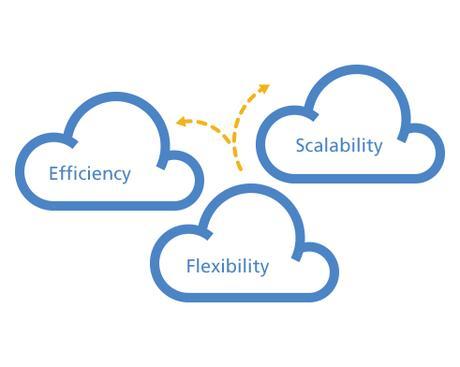
The beauty of the Magento CMS lies in its ability to provide several opportunities to users, helping them add a plenty of e-commerce capabilities in their online store with minimal efforts. Moreover, considering the fact that Magento dominates the e-commerce industry with 26 percent shares, the increasing adoption of this platform comes as no surprise. And thus, you can expect a rise in demand for Magento development.
If you’re a Magento developer, and have just started your development venture, there are several key aspects that need your consideration. In this post, however, we’ll discuss about the most significant concept, i.e. Magento API and how its integration proves beneficial for businesses. But, let us first talk about some of the most common concerns:
What Do We Mean by Magento API?
The API is basically a code that is provided by any third party, which needs to be implemented on our site, so as to make use of the services provided by that particular API provider.
Why You Need to Use Magento API?
You may come across some situation, wherein you’ll need to integrate a few services in your Magento store that it may be lacking. For example, you might would like to integrate Google APIs, map, analytics, and other stuff in your Magento e-commerce store. To do so, you just need to implement the Magento API code provided by the services provided whose services you want to use.
How Magento API Works?
We send some request and get some response for Magento-specific APIs that are provided by third parties. For instance, we can use Google Analytics to check the popularity of our e-store, or use Google Map API to show store locations, and so on.
Magento API Integration – An Overview
So, now that you’ve come to know about what is Magento API, why you need to use it and how it works, the next thing you should become familiar with is the Magento API Integration. There are two types of Magento API that are used to integrate several using Magento, namely: SOAP and REST.
SOAP: It is a Magento’s default XML-based protocol that makes applications able to send messages in a standardized manner over the web. Magento provides its users with a SOAP server that enables interaction with Magento, thereby helping those users to integrate Magento into their own application.
REST: Also referred Representational State Transfer, REST API is a new entry that helps to fix the problems users often encounter using SOAP. This API offers a simple method allowing users to access web services. But, at times you may find REST difficult to use compared to SOAP.
In a nutshell, both SOAP and REST API techniques have certain issues. So, make sure to carefully review how these techniques work and which one will best fit your needs before choosing any one of them.
Benefits That Businesses Can Avail With Magento API Integration
If you own a business, and are running an online store in the Magento store, there are several benefits that can be availed with the help of Magento API Integration. Most significantly, it will enable you to tie with third-party service provider to address your e-store specific needs. Below are some other benefits that get to enjoy via Magento API Integration:
• Wider Business Reach

Giving users with the ability to create a website, an app, etc., you can make use of Magento APIs for services and information distribution purposes to not only your target audiences, but to new clients as well. You can even customize the data you want to distribute according to users’ needs, resulting in enhanced user experiences. So, chances are that people who doesn’t visit your site may start visiting it, when they get access to your information from other sources online.
• Make Updated Content Readily Available to Users

Another crucial role that APIs play is in making your content available throughout your website or all the applications. This will make sure that your users will get up-to-date information about your business, regardless of the source they use to obtain your business-specific data. This means that users will be able to access information without having to navigate much from one source to another.
• Personalization
With APIs, your website users or other businesses get the ability to create personalize sessions including information, as well as, services that prove relevant to them. For instance, they can add some specific products by making calls to the REST API. For example, the below line of code will help you retrieve products of a Magento store. In addition, it will also help in creating, updating and deleting a product, by making a call to the Magento REST API as follows:
http://www.your-magento-store-domain.com/api/rest/products
• Gives Greater Flexibility
APIs can help your Magento store support unexpected future uses. Furthermore, making your online store data available using an API can help you migrate your data, improve the quality of the data and so on. In essence, APIs provides you with flexibility, by delivering services that help make your e-store highly efficient.

Conclusion
I hope that this post will help you understand the benefits that Magento API Integration can offer for your e-commerce business. No matter, whether you’ve hired to get the job done or are yourself performing the task of integrating a Magento API into your e-store, make sure to become well-acquainted with key aspects of Magento API such as the ones covered in the post.

